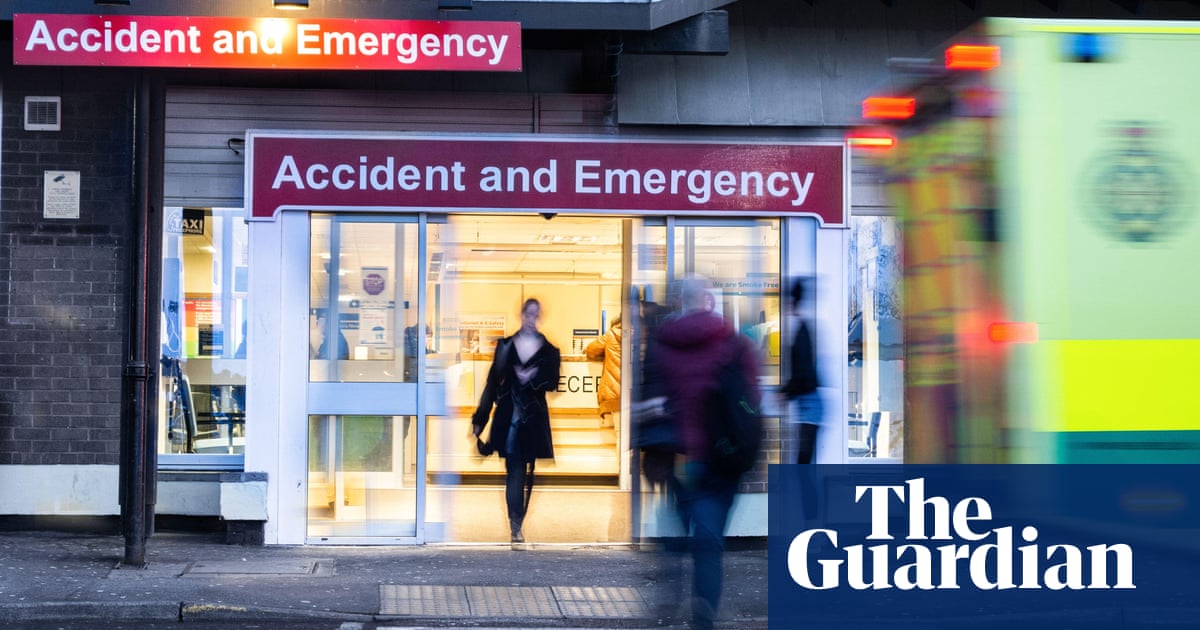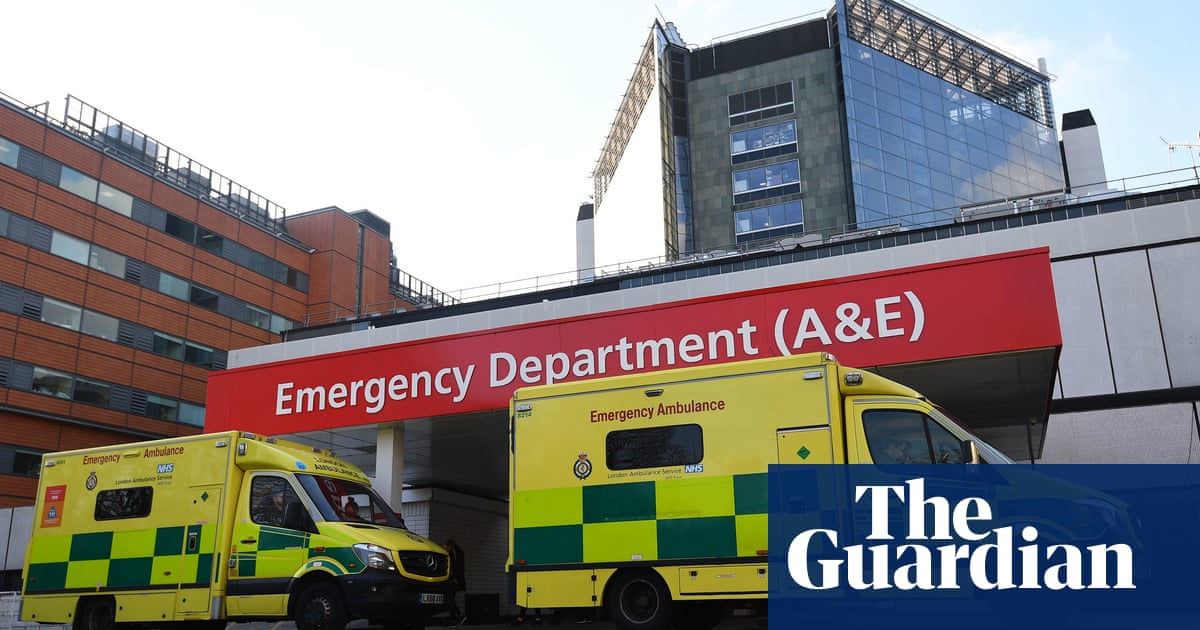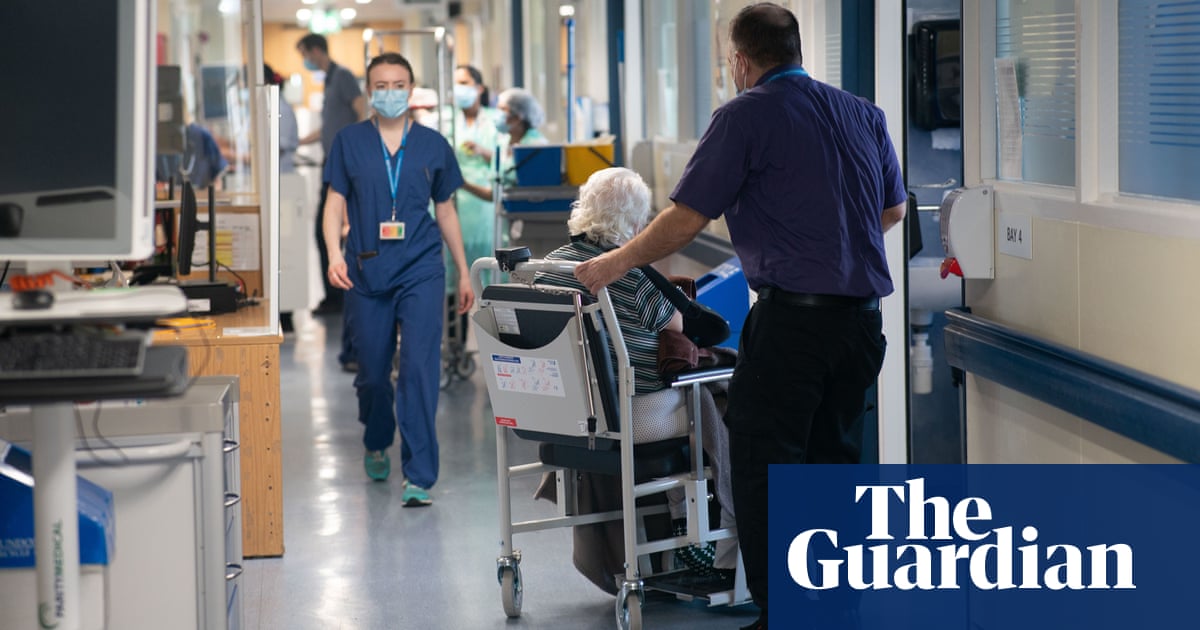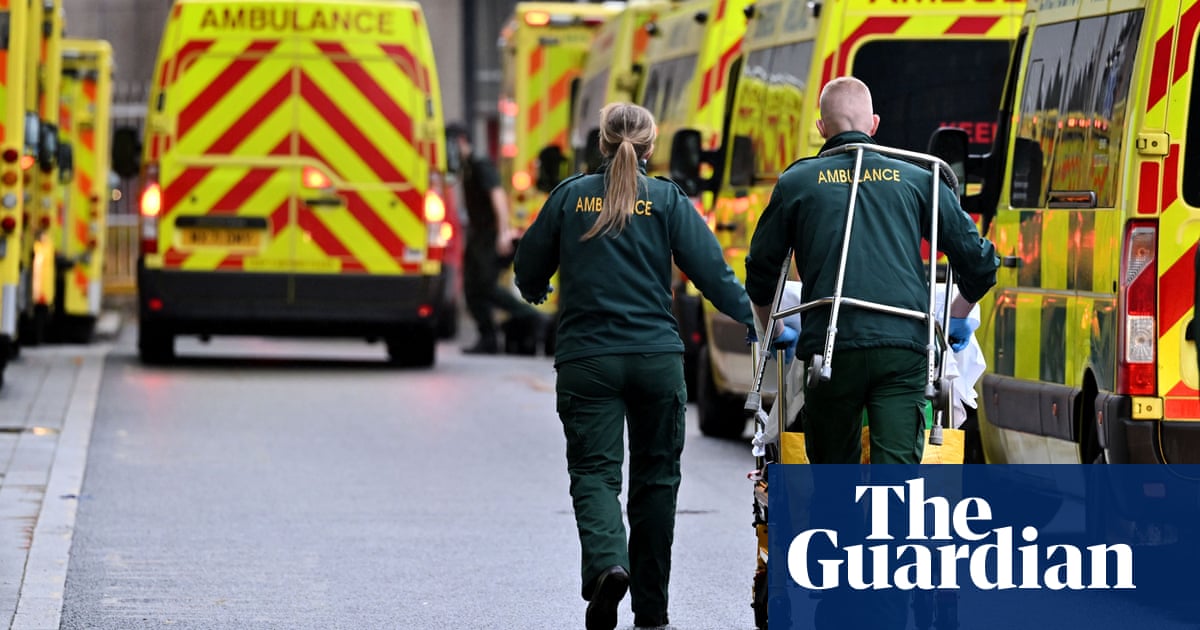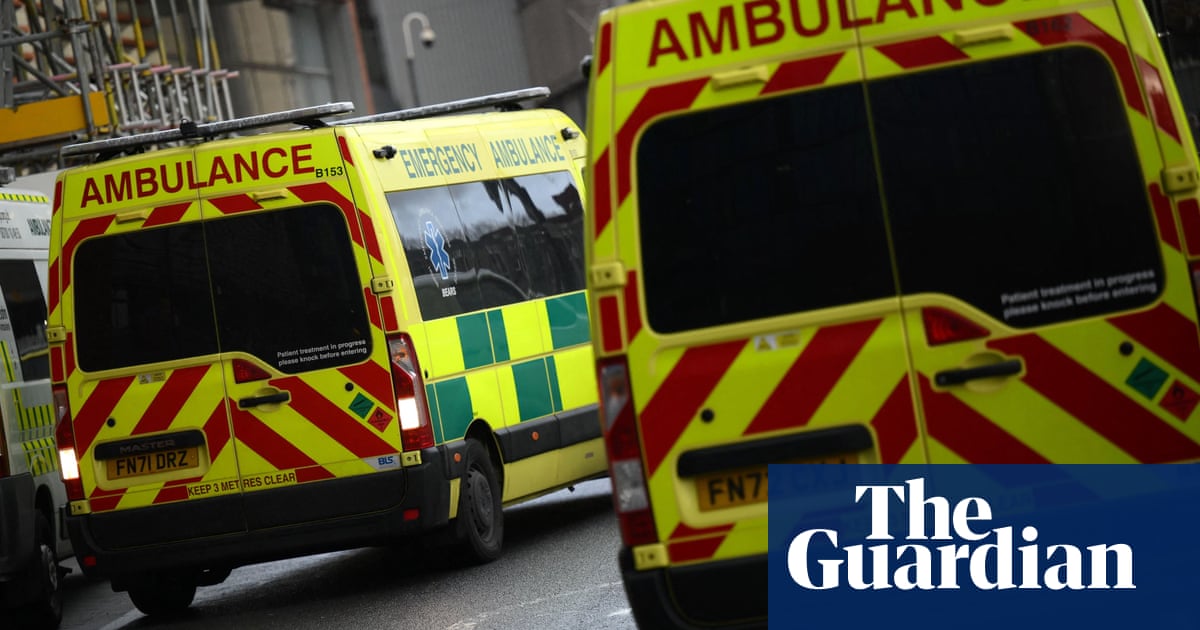
More than a quarter of ambulance patients in England waited more than an hour to be admitted to A&E in the last week of 2022, amid “one of the most difficult” winters in NHS history.
Of all those arriving by ambulance in the week to 1 January, 26.3% waited with crews for more than 60 minutes.
This affected 18,720 patients, much higher than in the past six winters and probably the highest recorded figure.
Matthew Taylor, the chief executive of the NHS Confederation, said the figures “underline the stark reality of the pressures that NHS leaders, their staff and patients are enduring”, which he said represented “crisis conditions with inherent risks to patient safety”.
He added: “We must learn the harsh lessons of this winter and the government must commit to giving the health and care system the tools and support it needs to avoid next winter being as bad as this one.
“Critical to that is rapid action to address the worsening workforce crisis in health and care, as a first and vital step, and reaching a compromise with the unions to stop this damaging industrial action.”
It comes as the government announced on Friday evening that the prime minister would hold emergency talks with NHS leaders on Saturday to tackle “the most crucial challenges” including emergency care.
The figures show more than 43% of ambulance arrivals waited more than 30 minutes to be admitted into A&E in the same week, either waiting with crew in the back of an ambulance or in hospital corridors.
The continuing impact of a combination of flu, Covid and the respiratory infection RSV are also contributing to put pressure on the service.
More than 5,400 beds were required for flu patients in the week to New Year’s Day, up 45% on the previous week. The equivalent figure in winter 2021-22 was just 39.
The same data release shows that the number of patients in critical care beds with flu increased by more than a quarter (26%) to 336, compared with 267 the previous week.
The number of Covid patients in hospitals across England rose by almost 1,200 compared with the previous week, with an average of 9,390 patients in hospital with Covid every day – with 88 beds required each day on average for children with RSV.
A further 12,809 beds were being taken up by patients who were medically fit to be discharged in the same week – a 30%rise on the previous winter.
A total of 3,562 critical care beds were occupied in the last week of the year, two short of the same week in 2020-21.
Miriam Deakin, the director of policy at NHS Providers, said the confluence of flu and Covid-19 mean “more people are requiring medical care at a time when the number of beds and staff is falling far short of what’s needed”.
The NHS national medical director, Prof Sir Stephen Powis, said: ““It remains vital that people make the most of services like 111 online and as ever, only use 999 in an emergency, and it’s also crucial that those who are eligible come forward for flu and Covid vaccines as soon as possible.”
About one in 20 people in the community, or 2.5 million, had Covid in England in the week ending 28 December, up from one in 45 for the week ending 9 December. The number was one in 18 in Wales, one in 25 in Scotland and one in 16 in Northern Ireland, the most recent figures show.
According to the latest data for England from the UK Health Security agency, the overall weekly hospital admission rate for Covid in the last week of the 2022 was 10.71 per 100,000. While this is a slight decrease from the week before, officials have warned the data may be affected by reporting delays and bank holidays.
Asked by broadcasters after the figures were published, the health secretary, Steve Barclay, said the government recognised the “massive strain” on the health service.
He said the government was putting in extra funding to tackle the issue, particularly focused on “getting people out of hospital who are fit to leave, but often are delayed on the wards”.
Barclay is to join NHS clinical leaders and chief executives at an “an NHS recovery forum” on Saturday, hosted by the prime minister.
The government announced on Friday evening that Rishi Sunak will hold talks at Downing Street “bringing together the best minds from the health and care sectors to help share knowledge and practical solutions, so that we can tackle the most crucial challenges”.
Responding to the announcement of the forum, Wes Streeting, the shadow health secretary, said: “After 13 years of mismanaging the NHS, this is the equivalent of the arsonists convening a forum with the fire brigade to put out the inferno they started.
“Patients deserve more than a talking shop. Clinical leaders and health experts have been sounding the alarm for months about the crisis the NHS is facing, so why has it taken so long for Rishi Sunak and Steve Barclay to decide to listen to them?”
Taylor said Saturday’s meeting would not be able to solve the problems facing the health and care sectors. “The reality is that there are no silver bullets here,” he said.




